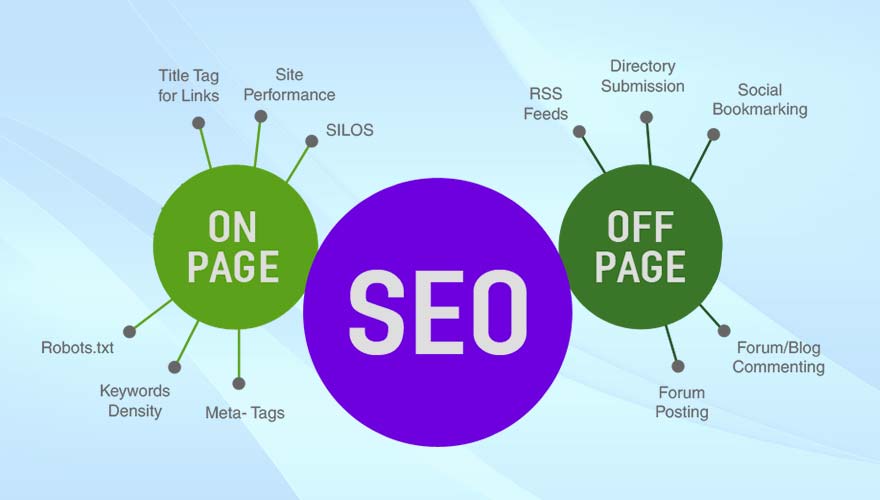SEO Fundamentals: 10 Essential On-page and Off-page Techniques You Need to Know

Strong 8k brings an ultra-HD IPTV experience to your living room and your pocket.
Imagine having the most beautiful website online, yet no one visits it. That’s the harsh reality for many businesses that don’t invest in SEO. Search engine optimization (SEO) remains the powerhouse behind digital visibility, website traffic, and online success. With billions of searches made on Google daily, understanding SEO fundamentals is no longer optional—it’s essential.
In this comprehensive guide, we’ll break down the latest strategies around On-page and Off-page Techniques, showing you how they work together to boost your site’s performance. Whether you are new to SEO or brushing up your skills, mastering these fundamentals will give you an edge in today’s hyper-competitive digital landscape.
Why SEO Still Reigns Supreme in 2025
Despite the rise of social media and paid ads, organic search remains the highest quality and most cost-effective source of traffic. According to BrightEdge, organic search drives 53% of all trackable website traffic. Users trust search engine results, and appearing in top positions signals authority, trust, and relevance.
But achieving top rankings requires more than just great content. It demands a deliberate combination of On-page and Off-page Techniques that align with search engine algorithms, user expectations, and evolving digital trends.
What Are On-page Techniques?
On-page SEO refers to optimizations made directly on your website to improve search engine rankings. These are elements you control and modify to make your site more attractive to users and crawlers.
Here are the crucial On-page elements you need to focus on:
1. High-Quality Content Creation
Content remains the undisputed king of SEO. However, quality matters more than quantity. In 2025, Google’s algorithms favor content that is original, authoritative, and delivers real value. E-A-T (Expertise, Authoritativeness, and Trustworthiness) is more important than ever.
Action Tip:
Conduct keyword research, understand user intent, and structure your articles with headings, bullet points (sparingly), and clear language. Add original insights, statistics, and visuals where possible.
2. Title Tags and Meta Descriptions
Your title tag and meta description are the first interactions users have with your page on the search engine results page (SERP). A compelling, keyword-optimized title improves click-through rates significantly.
Action Tip:
Keep titles under 60 characters, include your primary keyword, and write persuasive meta descriptions under 160 characters.
3. URL Structure
A clean and readable URL helps both users and search engines understand what your page is about.
Action Tip:
Use short URLs that include your target keywords, avoid unnecessary parameters, and separate words with hyphens.
4. Header Tags (H1, H2, H3)
Headers help organize content and make it scannable. The H1 tag should be reserved for your main headline (only one per page), while H2 and H3 tags should break down your supporting points.
Action Tip:
Strategically place keywords in headers but always prioritize readability.
5. Mobile-friendliness
Mobile-first indexing means Google predominantly uses the mobile version of your content for indexing and ranking.
Action Tip:
Ensure your website is fully responsive and offers a seamless user experience across devices.
6. Page Speed Optimization
Page speed is a confirmed ranking factor. Slow-loading sites frustrate users and lead to higher bounce rates.
Action Tip:
Compress images, leverage browser caching, use Content Delivery Networks (CDNs), and minimize JavaScript.
What Are Off-page Techniques?
Off-page SEO refers to activities conducted outside your website to impact rankings positively. It builds your site’s credibility, trust, and authority in the eyes of both users and search engines.
Here are the core Off-page strategies:
7. Link Building
Earning backlinks from reputable sites signals that your content is trustworthy and valuable.
Action Tip:
Focus on earning high-quality links through guest blogging, digital PR, influencer collaborations, and original research reports.
8. Social Media Engagement
While social media signals aren’t direct ranking factors, there’s a strong correlation between active social media presence and higher rankings. It amplifies your content reach and increases backlink opportunities.
Action Tip:
Promote your content across social media platforms strategically. Engage with audiences, join relevant conversations, and build relationships.
9. Online Reputation Management
Reviews, brand mentions, and online ratings impact user trust—and indirectly, SEO.
Action Tip:
Encourage satisfied customers to leave reviews on platforms like Google My Business, Yelp, and Trustpilot. Respond professionally to both positive and negative reviews.
10. Influencer Outreach
Partnering with influencers in your industry can help you reach a broader audience, build trust, and gain authoritative backlinks.
Action Tip:
Identify influencers whose audiences align with your target market. Offer collaboration opportunities that benefit both parties.
How On-page and Off-page Techniques Work Together
SEO is most effective when On-page and Off-page techniques are implemented in harmony. Great content (on-page) without promotion (off-page) will go unnoticed. Similarly, a robust link profile (off-page) pointing to weak content (on-page) won’t yield sustainable rankings.
Think of your website as a product. On-page SEO ensures the product is high quality. Off-page SEO ensures that the right people hear about it.
When both strategies are aligned, they create a flywheel effect where good rankings drive traffic, traffic drives engagement, and engagement drives better rankings.
How to Get Started (Even If You’re New)
If you’re new to SEO, it might feel overwhelming at first. Start by focusing on a few high-impact areas:
Perform an SEO audit of your website using tools like Semrush, Ahrefs, or Screaming Frog.
Optimize your existing content with target keywords.
Create a content calendar based on keyword research.
Start a link-building campaign by reaching out to related blogs and websites.
If you’re serious about mastering SEO and staying competitive, consider enrolling in an advanced digital marketing course. These programs offer in-depth knowledge of SEO, PPC, email marketing, analytics, and much more, helping you fast-track your career or business growth.
Future Trends in On-page and Off-page SEO
Looking ahead, expect the following trends to shape SEO:
AI and SEO: Google’s algorithm updates like MUM and Search Generative Experience (SGE) are powered by AI, making content quality and semantic relevance more critical.
Voice Search Optimization: With the rise of smart speakers and virtual assistants, optimizing for conversational queries will be key.
Brand Building: Google favors recognizable brands. Building authority and visibility beyond just your website is now crucial.
User Experience (UX): Core Web Vitals and user engagement signals will continue to influence rankings heavily.
Keeping up with these trends will ensure your SEO strategies remain future-proof.
Final Thoughts
Mastering On-page and Off-page Techniques is the cornerstone of effective SEO. It’s not about quick hacks or tricking algorithms—it’s about creating real value, building authority, and enhancing user experience. Whether you’re optimizing your website’s structure, crafting outstanding content, or building a network of quality backlinks, remember: SEO success takes time, consistency, and a keen eye on evolving best practices.
If you invest in learning these fundamentals and consistently apply them, your website will not only survive but thrive in the competitive digital marketplace.
Note: IndiBlogHub features both user-submitted and editorial content. We do not verify third-party contributions. Read our Disclaimer and Privacy Policyfor details.



